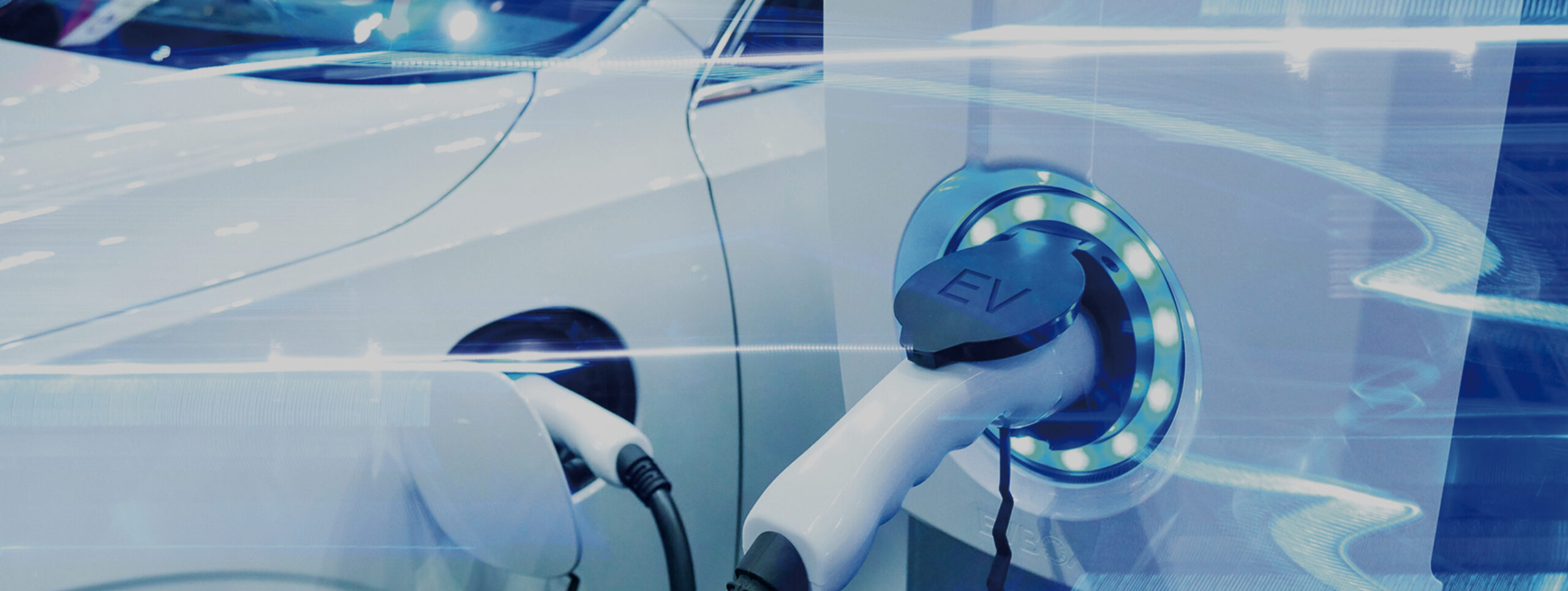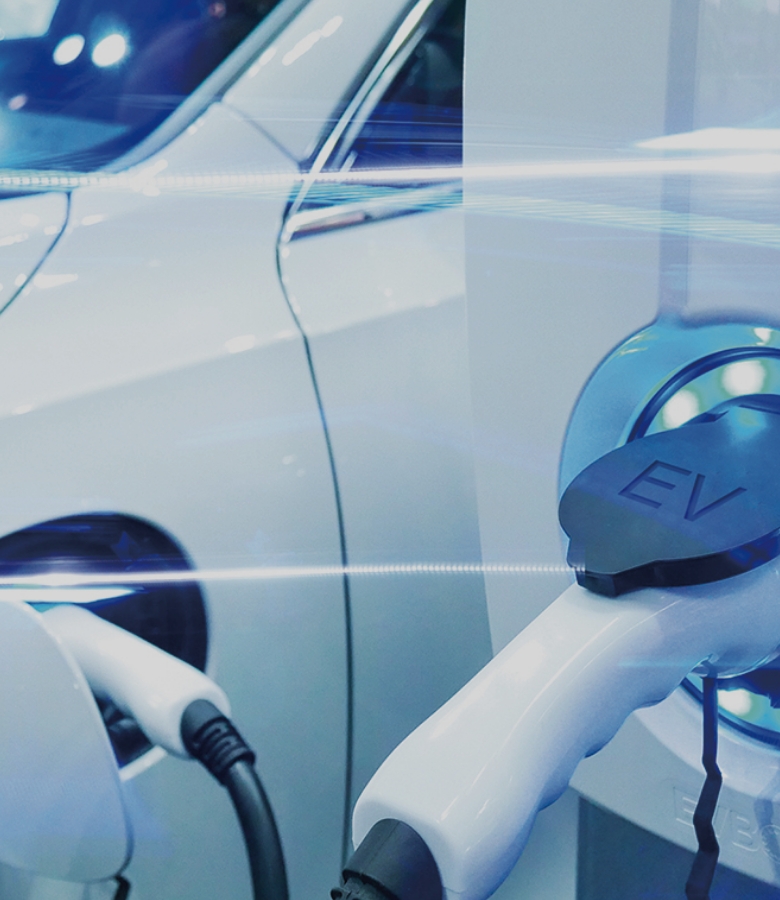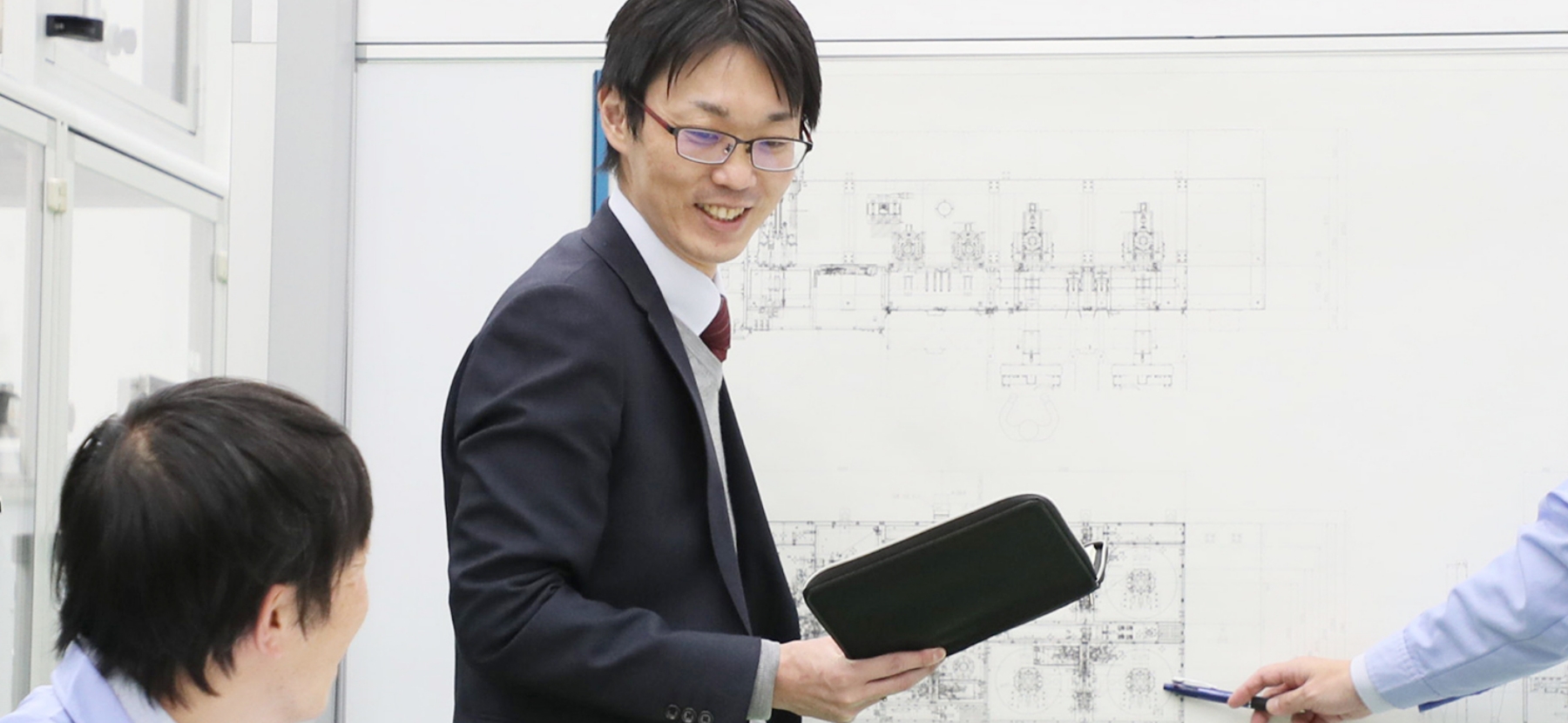Winding machine for lithium-ion batteries
Embodying diverse customer needs
with high productivity and quality


THEME
Global demand for automotive
lithium-ion batteries surges
The electrification of vehicles is accelerating toward the goal of carbon neutrality. With demand for lithium-ion batteries expected to grow significantly in the future, one of CKD's priorities is to focus on the battery-related equipment business. CKD supports the front line of lithium-ion battery production, which plays an essential role as on-board batteries for next-generation vehicles.

MISSION
The demand for automotive lithium-ion batteries will grow as society moves away from gasoline-powered cars by 2035.
In recent years, hybrid and electric vehicles, as well as various other types of vehicles, have been increasingly electrified from the perspective of carbon neutrality, which is a means of virtually eliminating greenhouse gas emissions as a countermeasure to global warming. In addition, countries around the world are increasingly regulating gasoline-powered vehicles. Many automakers have announced increased production of hybrid and electric vehicles, and global production of automotive lithium-ion batteries is expected to expand by 2035. Against this backdrop, investment in lithium-ion battery production facilities is increasing, and demand for lithium-ion battery winding machines, which we manufacture and sell, is rising worldwide.

Lithium-ion batteries are manufactured by overlapping and winding cathode and anode materials, and separators (insulating materials) in a predetermined position. This winding process is performed by the winding machine, which is the head of the assembly in the production process. Various technologies are required, including meandering correction technology to control the position of each material, and tension control technology to maintain the tension of the material at a predetermined value.
Naturally, if the winding machine does not operate normally and stably, there are risks such as stoppage of the assembly process and defective products. Therefore, both cost and quality are always required at the manufacturing site. Since safety is directly related to the safety of vehicles, which is the most important factor in the vehicle industry, it is necessary to achieve high quality requirements at low cost.
APPROACH
Meeting cost and quality requirements by improving facility productivity
Materials for automotive lithium-ion batteries are constantly being improved to enhance the driving performance of vehicles. One example is changes in the coating materials used in batteries. As the coating material changes, the hardness of the material and how it slides within the device also change. In addition, the thickness of the material may increase, making it more difficult to handle. Since equipment must be improved in response to changes in materials, it is not realistic to reduce costs through "mass production" by continuing to manufacture the same equipment. Also, unlike primary batteries such as AA batteries, lithium-ion batteries are not standardized. The differences in size and specifications among battery manufacturers are another reason why they are not suitable for mass production.
In this situation, CKD has developed a winding machine that can reduce production costs by increasing the productivity of equipment to achieve a balance between cost and quality, which is essentially a trade-off relationship. Simply put, if the time required to make a battery can be reduced, it will be possible to make several times as many batteries in the same amount of time as before. Even if the cost of the equipment were to increase by 1.5 times, if the same production volume could be secured with half the number of machines in operation, it would result in cost reductions.


The "PEW-380" Winding Machine for Lithium-ion Batteries

Image of the wound material
The key points of improvement are the mechanism and structure of the winding machine and how quickly the material can be fed into the machine and how fast it can be wound. This directly leads to shorter production time and improved quality. Naturally, pursuing speed alone will result in lower winding accuracy during production. We worked to improve quality through a number of trial and error processes, including the improvement of the shaft that winds the material, while searching for the optimum balance between production speed and stable operation.
VISION
Contributing to the evolution of next-generation automobiles by improving production capacity
In order to keep pace with the evolution of next-generation automobiles, we are constantly seeking ways to improve productivity, while also benefiting from the wisdom of our customers.
As a result, we are now able to produce lithium-ion batteries in about one-fifth the time it took several years ago.
Orders for this winding machine have increased in line with the growing global demand for lithium-ion batteries. The number of orders has increased several-fold, including the delivery of multiple units to a customer that previously ordered one unit a year.
At the same time, customers are demanding early start-up of production, and we are having to produce a large number of units in parallel. Therefore, we have made the lithium-ion battery winding machines a priority of the division and launched a new project. We are working on the production of the winders while thoroughly sharing information and collaborating with each other in the process of designing, procuring parts, assembling and adjusting the equipment, and checking its operation. Not only the division but also the company is focusing on winders as a product that reduces environmental impact, and we aim to contribute to the realization of carbon neutrality while continuing to innovate our technology in the future.

My personal goal as the person in charge of battery equipment is to steadily increase deliveries and sales as demand for lithium-ion batteries for automotive applications grows further. Today, cars are on the road in every country in the world. Nothing would make me prouder than to be able to proclaim, "Batteries made by my company's machines are installed in every one of those cars.